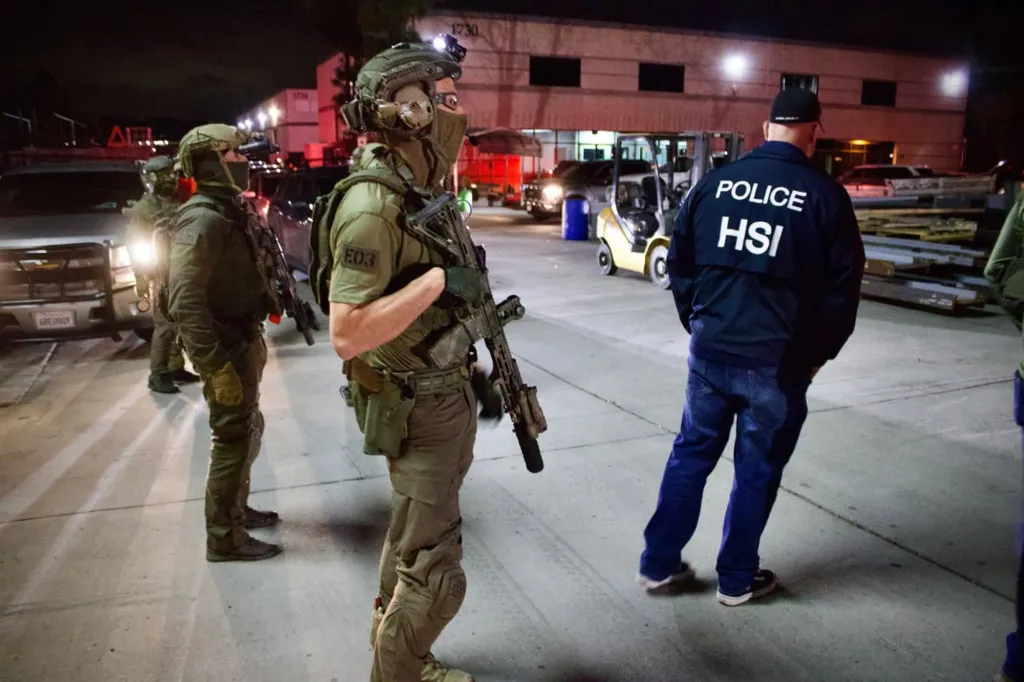
You’ve seen the viral videos: ICE officers in tactical gear making arrests in San Diego. Almost instantly, the outrage machine kicks in. Politicians up for reelection rush to their social media accounts, paid activists flood social media and the same words get repeated: Nazis. Terrorists. Gestapo. Kidnappers. The narrative is that ICE agents are supposedly hunting down innocent parents on school grounds.
But I wanted to get the perspective of those facing this torrent of criticism. So I sat down for an exclusive interview with Patrick Divver, the man in charge of Enforcement and Removal Operations (ERO) for ICE in San Diego. He is the top official overseeing arrests, detention and deportation across our region. What I learned is far different from the misinformation being spread.
“The mission of ICE is simple,” Divver told me. “We safeguard our borders and enforce immigration laws as written by Congress. Our officers make targeted arrests of people who are in the U.S. illegally, especially those with serious criminal records.”
Those criminals aren’t hypothetical. In just the past three months, San Diego ICE agents have arrested four murderers, multiple convicted gang members and sex offenders. One of the most chilling cases came just days ago. Officers discovered a convicted sex offender, an unregistered sex offender with a long criminal record, living inside a San Diego home daycare. That man is now gone from our community. If not for ICE, he could still be there, surrounded by children.
And yet the rhetoric against ICE has never been more reckless, or more dangerous. “Calling our officers kidnappers or Gestapo doesn’t just put them at risk, it puts the public at risk too,” Divver said. “We’ve had people interfere with arrests because they believe this false narrative. They’re endangering themselves, our officers and the very communities we’re trying to protect.”
It’s not just words. The Department of Homeland Security reports assaults against ICE officers are up more than 1,000%. These are federal law enforcement agents sworn to uphold laws passed by Congress. They aren’t outsiders; they live in our neighborhoods, send their kids to our schools and go home every night to the same San Diego communities they’re working to protect. When activists paint them as monsters, they aren’t just undermining trust, they’re painting a target on officers’ backs.
Another myth? That ICE randomly swoops up people at bus stops or schoolyards. The truth: ICE makes targeted enforcement actions based on evidence that a specific individual is in the country illegally, often after due process and a removal order by a judge. Every person arrested has constitutional rights. Every person gets due process. Divver is blunt: “It’s a misnomer to say they don’t.”
ICE’s role isn’t limited to arrests. Divver oversees three detention facilities housing nearly 4,000 people every day. His team repatriates hundreds of people weekly to their home countries, countries like Vietnam and Laos that once refused to take deportees but now cooperate thanks to new diplomatic pressure.
But California’s “sanctuary” law, SB 54, makes their job harder. It prevents local law enforcement from cooperating with ICE in jails. That means instead of safely transferring dangerous criminals in a controlled environment, ICE officers must locate them in neighborhoods. “It doesn’t make anyone safer,” Divver explained. “It forces us to send larger teams into communities where risks are higher for everyone.”
What struck me most in our interview wasn’t the statistics. It was the humanity. Divver talked with pride about his officers’ professionalism, their restraint and their mission. “They’re not in it for glory,” he said. “They get up every morning to do the public good, to make San Diego safer.”
We can have debates about immigration policy. We can demand reform from Congress. But vilifying the men and women tasked with enforcing the law doesn’t make us safer, it endangers them and endangers us all. San Diego families, especially women and children, are safer because of the work ICE is doing in our community.



